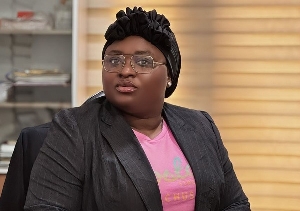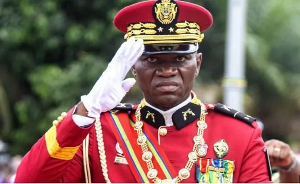Today’s pandemic-induced humanitarian and economic crisis represents an unprecedented opportunity to go beyond emergency responses and address our economies’ structural flaws.
Many governments’ stimulus and recovery packages are already shaping the future. But leaders across all sectors of society should recognize this moment as a rare chance to build a more inclusive and sustainable world, which will be possible only if we end poverty in all its forms.
Ending poverty might seem like an impossible dream, but so did abolishing slavery and ending apartheid. The launch of the global Multidimensional Poverty Index 2020 can serve as a catalyst.
Recently released by the United Nations Development Programme and the Oxford Poverty and Human Development Initiative, the MPI shows that 65 of the 75 countries studied reduced their poverty levels significantly within the last decade.
Moreover, the country that reduced poverty the fastest, Sierra Leone, did so despite the Ebola epidemic that began in 2014.
The risk now is that these gains could be reversed. The COVID-19 crisis requires the commitment of global and national leaders not only to preserve hard-won progress, but also to turn a corner in the global effort to end poverty. This will not be easy, given that the pandemic is exacerbating pre-existing inequalities.
It is a “myth that we are all in the same boat,” observed United Nations Secretary General António Guterres this month. “While we are all floating on the same sea, it’s clear that some are in superyachts while others are clinging to the drifting debris.” It is thus all the more essential that we extend a hand to the poor, who are suffering multiple deprivations, with COVID-19 adding to what was already a crushing burden.
Using data dating back to 2010, the MPI provides a comprehensive picture of how people experience disadvantages in their daily lives, because it simultaneously measures deprivations in health care, education, and living standards across ten indicators.
These data can help us mitigate the pandemic’s burden on the 1.3 billion people living in multidimensional poverty, while preventing many others from becoming impoverished. At the national level, governments should consider creating their own country-specific MPIs to guide effective strategies for tackling poverty.
Dozens of countries around the world already have. Of the 47 countries to submit Voluntary National Reviews at the UN’s High-Level Political Forum this month, 21 mention multidimensional poverty. We hope they can wield this powerful tool during the pandemic itself. By emphasizing support for the most vulnerable today, all countries will be in a stronger position to “build back better” after the pandemic. Tackling multidimensional poverty is good for society, and good for peace.
But to turn a corner on poverty, commitments at the highest levels are essential. During my (Santos’s) tenure as president of Colombia, we complemented the peace process with the Revolutionary Armed Forces of Colombia (FARC) with a national MPI that focused not just on income but also on the additional social deprivations that were affecting Colombians’ lives. Our MPI, supported by robust data, served as the basis for developing concrete programs and policies that succeeded in reducing multidimensional poverty from 30.4% to 19.6% within eight years.
Countries that do not yet have an official permanent multidimensional poverty indicator could explore the global MPI to see if it could strengthen their own efforts. Either way, all governments must place human dignity and capabilities at the center of their recovery strategies.
National governments can’t do this alone, of course. The magnitude of the challenge demands collective action on the part of businesses, nongovernmental and civil-society organizations, and philanthropists. Now is the time to back words with action. Leaders must demonstrate grit, determination, and endurance, and combine boldness with pragmatism. Mobilizing all sectors of society around the common cause of ending poverty will benefit not just the poor but also the broader economy.
In the wake of World War II, Eleanor Roosevelt noted that, “We cannot tell from day to day what may come. This is no ordinary time. No time for weighing anything, except what we can best do for the country as a whole.” In these challenging times, humanity has an opportunity to come together in solidarity on behalf of those left behind, and to act with vision and determination to end poverty in all its dimensions everywhere.
At the start of this pandemic, our friend Amartya Sen, a Nobel laureate economist, reminded us of good and bad examples of leadership during times of crisis. He pointed out that during WWII, a rationing system in Britain led to more equal food distribution, which in turn underpinned a sharp increase in life expectancy – of 6.5 years for men and seven years for women (up from an increase of only 1.2 and 1.5 years, respectively, in the previous decade).
The lesson from that experience, and from Sierra Leone’s over the past decade, is that forward-looking, practical, equitable policies enacted during times of duress do work. Let us hope that today’s leaders recognize the opportunity in front of them, and adopt the multidimensional metrics needed to seize it.
Opinions of Sunday, 2 August 2020
Columnist: Juan Manuel Santos and Sabina Alkire



















